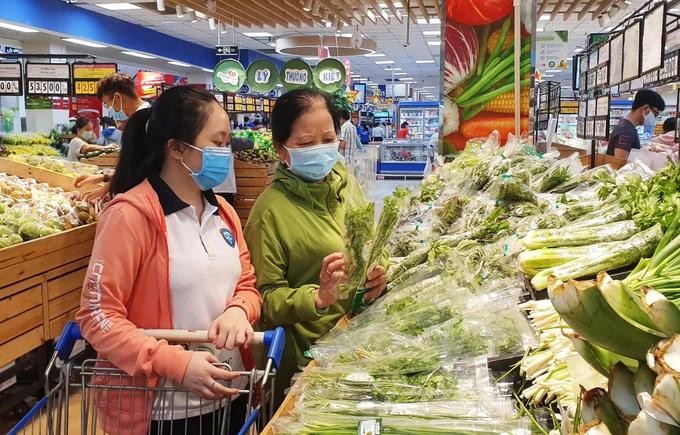
The Ministry of Industry and Trade has called for enhanced development of the domestic market and increased stimulation of domestic consumption in 2025. This directive arises amid concerns that several of Vietnam’s key export products may encounter significant challenges abroad, particularly due to the potential imposition of tariffs as high as 46 percent in the United States.
The Minister of Industry and Trade has issued the Directive No. 08, urging units in this sector to simultaneously implement solutions that will stimulate domestic consumption and develop the domestic market by 2025.
Aiming to boost total retail sales of goods and services by around 12 percent this year, the Ministry of Industry and Trade has set specific targets for the Departments of Industry and Trade, industry associations, and major enterprises, in line with the Government's Resolution 25/NQ-CP.
In the first quarter of 2025, although the economy recorded some positive indicators such as public investment capital increasing by 21.7 percent, FDI increasing by 35.5 percent, exports increasing by 32.6 percent and total retail sales of goods and services increasing by 9.4 percent, this increase is still considered to have not met expectations compared to the annual GDP target of over 8 percent and the domestic consumption growth target of 12 percent.
The prevailing market environment, characterized by the intensification of protectionist policies in major export destinations, presents a significant challenge to Vietnamese export products. The potential imposition of tariffs, reaching a substantial 46 percent in some cases, creates a considerable risk to the competitiveness of these products and consequently places downward pressure on domestic consumption.
The Ministry of Industry and Trade has directed its departments and localities to continue implementing domestic stimulus initiatives, including the ‘Vietnamese People Prioritize Using Vietnamese Goods’ campaign, the One Commune One Product (OCOP) program, promotion of traditional trade and e-commerce, development of trade infrastructure such as logistics centers and outlet systems, and the expansion of distribution networks to rural and mountainous regions.
The Ministry of Industry and Trade has also tasked the Department of Domestic Market Management and Development with coordinating relevant units to organize conferences aimed at assessing market conditions, addressing barriers to goods consumption, and ensuring a stable supply of gasoline and oil to support both consumption and production.
The Department of Trade Promotion is responsible for promoting large-scale programs connecting regional markets, and bolstering consumption of export goods during economic downturns.
The Vietnam E-commerce and Digital Economy Agency is assigned to support businesses and localities in applying digital technology and artificial intelligence to distribute products; closely monitor promotional activities, strictly handle fraudulent behavior, unfair competition in the market, especially on e-commerce platforms.
Furthermore, the Agency of Foreign Trade, under the Department of Foreign Market Development, is actively engaged in diversifying export markets, assisting businesses in navigating technical barriers and trade protection measures imposed by foreign nations, and leveraging Free Trade Agreements (FTAs) and sub-regional cooperation mechanisms to enhance competitiveness.
Corporations, businesses, and distribution or production enterprises must invest in infrastructure, participate in stimulus initiatives, promote consumption of agricultural products, regional specialties, and safe goods, as well as expand distribution networks to remote areas.
Key petroleum enterprises such as Petrolimex must strictly implement reserves, ensuring supply in the context of possible increased demand.
Industry associations are also assigned the responsibility of directing member businesses to promote trade, improve product quality, develop domestic distribution systems and implement effective promotional programs to support domestic consumption.
























